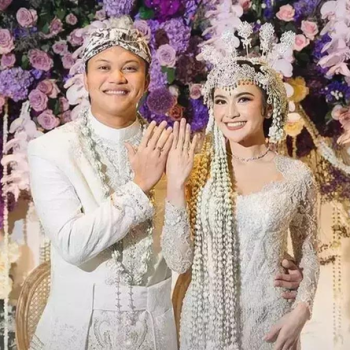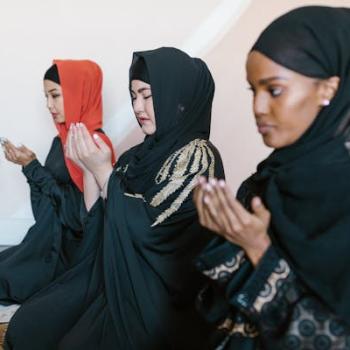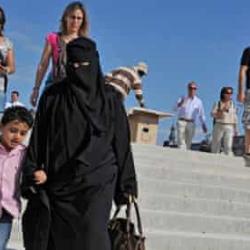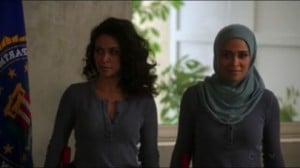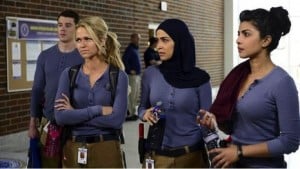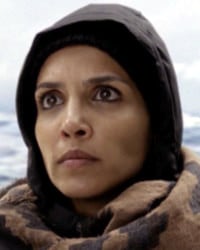After 90 episodes, ‘Men Wanted’, the Syrian Arabic soap opera, has concluded its season for this year on Saudi-owned television channel MBC 4.

For those who do not know ‘Men Wanted,’ the Venezuelan-style soap opera is adapted to an Arab environment, with its actions taking place in Dubai. ‘Men Wanted’ tells the story of Hala, an Egyptian lady married to Khaled, a successful businessman, with a son and a daughter. Hala owns a beauty salon, in which a number of ladies from different nationalities work. The audience follows the life of Hala after she discovers her husband’s infidelity, and explores what would happen to a lady with highly seductive looks that most men she meets would always find irresistible.
As viewers, we also follow the “adventures” of her husband, who ends up falling in the arms of a prostitute; her son, who switches between girls as if he is changing clothes; and her daughter, who got married to her university professor, after having an “unbelievable love story.”
The huge budget allocated for this soap opera is most conspicuous in the chosen shooting locations, in addition to the extravagant clothing and makeup styles adopted by its female stars that seem to mark an outrageous detachment from reality. Hala appears to be the Marilyn Monroe of Dubai: every man meeting her easily submits to her as if she is the only one with good looks around.
All the women of ‘Men Wanted’ appear to come from rich families, or have large incomes to sustain their excessive style of clothes and makeup they wear. In a way, this seems to be rather reminiscent of the stereotypical notion of Dubai being a city of the rich and famous. I have lived in Dubai now for almost 10 years, and know firsthand how people labor every day to make a living and cope with high rents, skyrocketing inflation rates, and very tight budgets (especially in recent years). So it seems a little far-fetched that women working in salons could have the life of luxury shown in “Men Wanted.”
On another level, the way ‘Men Wanted’ portrays Arab women is very shallow, since it shows their sole interest is in men and love relationships. The soap opera overlooks the fact that women in this part of the world have come a long way in their achievements and interests. They surely have more interest in other things with redeeming moral values, and not just in men. Through the way they dress, women of ‘Men Wanted’ are objectified to the level where they lose their human qualities. For example, Hala, while a mother of two, dresses like a young lady in her early 20s with little regard for the social and cultural context in which the drama is acted.
The unrealistic nature of ‘Men Wanted’ was bound to generate negative commentaries. In his post titled “Men Wanted: A big soap opera that lacks content”, Raed Al Issa writes: “Most female roles presented in ‘Men Wanted’ were very shallow, and lacked depth. Most of their roles were similar; all what those ladies cared about was looking for a boyfriend or a loved one or someone to spend the night with for dinner. That applies to all women in Hala’s salon, university students, and all other women appearing in ‘Men Wanted.’”
I believe that ‘Men Wanted,’ like Arabic-dubbed TV soap operas imported from Latin America, the United States, and recently from Turkey, would not be helpful in promoting a fair and accurate image of Arab women in modern life. It is not wise to import foreign-styled drama produced in alien societies into Arabian communities where women are already struggling to assert their positions. We all know that each society has its own values and traditions that make it different from others. By adapting this screenplay to the Arab environment, television producers are actually telling us that Arab women are no different from their Venezuelan counterparts, which is not true at all. Instead, I believe the region has ones of the best and brightest television production talents that could be harnessed to project Arab women’s images in the best of forms.
It is rather agonizing to see such women being objectified on television at a time when we have sisters and friends in Tunisia, Egypt, Yemen and other Arab countries standing at the forefront of the fight for freedom and democracy. It is true that imported soap operas represent a bonanza of opportunities for TV producers and broadcasters, but when it comes to women representation in the media sphere, commercial considerations should never take precedence!


